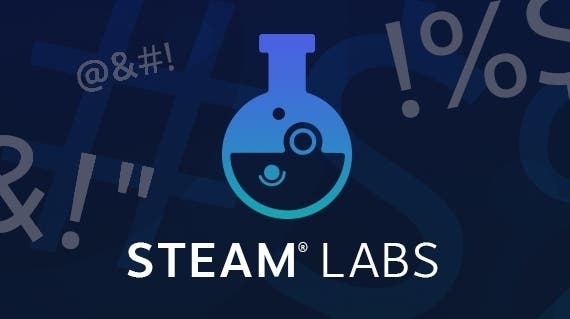Steam is testing a customisable chat filter
For when the red mist descends.
Watch your language - or have Steam do it for you, as Valve is trialling a new text and chat filtering system which allows players to control what sort of language they see on the platform.
Available now in beta through Steam Labs, the system is built on the chat filtering used by CS:GO, Destiny 2 and Dota 2, and allows players to customise their preferences across supporting games and the Steam client, web, and mobile chat. It obscures "the most offensive language shared on Steam" and replaces the words with symbols, but players can control whether profanity and slurs are displayed, and can add or remove specific words from their personal filter. Valve says it's also possible to upload lists of words or phrases, thus "empowering groups and communities to work together to define and share your own sets of language guidelines".
"A playful match can quickly turn to a heated competition full of emotion and expression, some of which crosses a line," Valve explained in a community post. "But where is that line? We've found the answer is different for everyone.
"While we continue to develop longer-term solutions in this space, Steam users are in search of ways to empower themselves now in the face of online communication which crosses their personal line. So we have built a simple system to filter strong profanity and slurs."
Valve has traditionally taken a fairly relaxed approach to Steam moderation, both in terms of the games allowed on the store and community groups, but over the past couple of years has taken some measures to introduce moderation to Steam Workshop submissions and game hub discussions. Steam does have parental controls and already obscures profane and hateful language on public pages, however, while inappropriate imagery posted to the Steam Community is automatically blurred. The optional chat filter is another good step in the right direction, particularly given how game communities have highlighted abusive language on the platform as a problem in the past.

